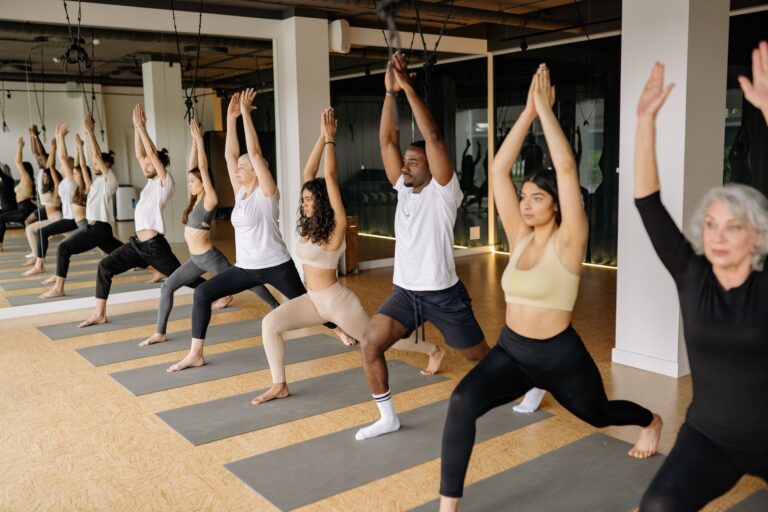Mindful Movement: Exploring Tai Chi, Yoga and Qigong as Spiritual Practices
As we age, the importance of mindfulness becomes increasingly evident in fostering a vibrant and fulfilling life. By engaging in mindful movement practices like Tai Chi, Yoga, and Qigong, older adults can unlock numerous physical, mental, and emotional benefits. These spiritual practices not only empower individuals to lead healthier and more connected lives but also serve as valuable resources for personal growth and self-discovery. Join us as we delve into the world of Tai Chi, Yoga, and Qigong to explore how these practices promote a life of wellness, empowerment, and personal growth for anyone practicing them:
Tai Chi
Often referred to as “meditation in motion,” Tai Chi is a Chinese martial art that combines slow, deliberate movements with deep, focused breathing. This practice is an excellent option for older adults seeking a vibrant lifestyle, as it promotes flexibility, balance, and strength while reducing stress and anxiety. By engaging in Tai Chi, individuals can improve their overall well-being and connect with others in a supportive, communal environment. Furthermore, the emphasis on mindful movement and inner tranquility makes Tai Chi a powerful spiritual practice, fostering a deeper understanding of oneself and the world.
Yoga
Yoga is an ancient Indian practice that harmonizes the mind, body, and spirit through a combination of physical postures, breath control, and meditation. For older adults looking to enhance their vibrant living experience, yoga offers numerous benefits, including increased flexibility, strength, balance, and relaxation. Yoga also fosters mental and emotional well-being by promoting mindfulness and stress reduction. By offering various styles and modifications, individuals can tailor their yoga practice to their needs and abilities, empowering them to explore their personal growth journey. Through this exploration, Yoga becomes not just a physical exercise, but a spiritual practice that allows older adults to connect with their inner selves and the world around them.
Qigong
Qigong is a Chinese healing art that integrates physical postures, breathing techniques, and focused intention to cultivate and balance the body’s vital energy, or “qi.” This gentle practice can greatly benefit older adults by enhancing overall health, reducing stress, and improving balance and coordination, all of which contribute to a more vibrant lifestyle. Additionally, Qigong promotes mental clarity and emotional stability, providing a sense of harmony and interconnectedness with the self and the world. As a spiritual practice, Qigong offers a holistic approach to wellness, empowering older adults to lead more fulfilling and purposeful lives.
Local community centers, gyms, and studios often provide tailored classes for older adults to learn and practice mindful movement disciplines. For those who prefer learning at home, numerous online resources, such as instructional videos and virtual classes, are available on platforms like YouTube and Google. Public libraries and bookstores also offer books and DVDs for various skill levels and abilities. By exploring these resources, older adults can seamlessly incorporate mindful movement into their vibrant daily lives.
Embracing mindful movement practices like Tai Chi, Yoga, and Qigong offers older adults a wealth of physical, mental, and emotional benefits, contributing to a vibrant and fulfilling life. With numerous resources available, there’s no better time to explore these spiritual practices and enhance wellness, empowerment, and personal growth.


